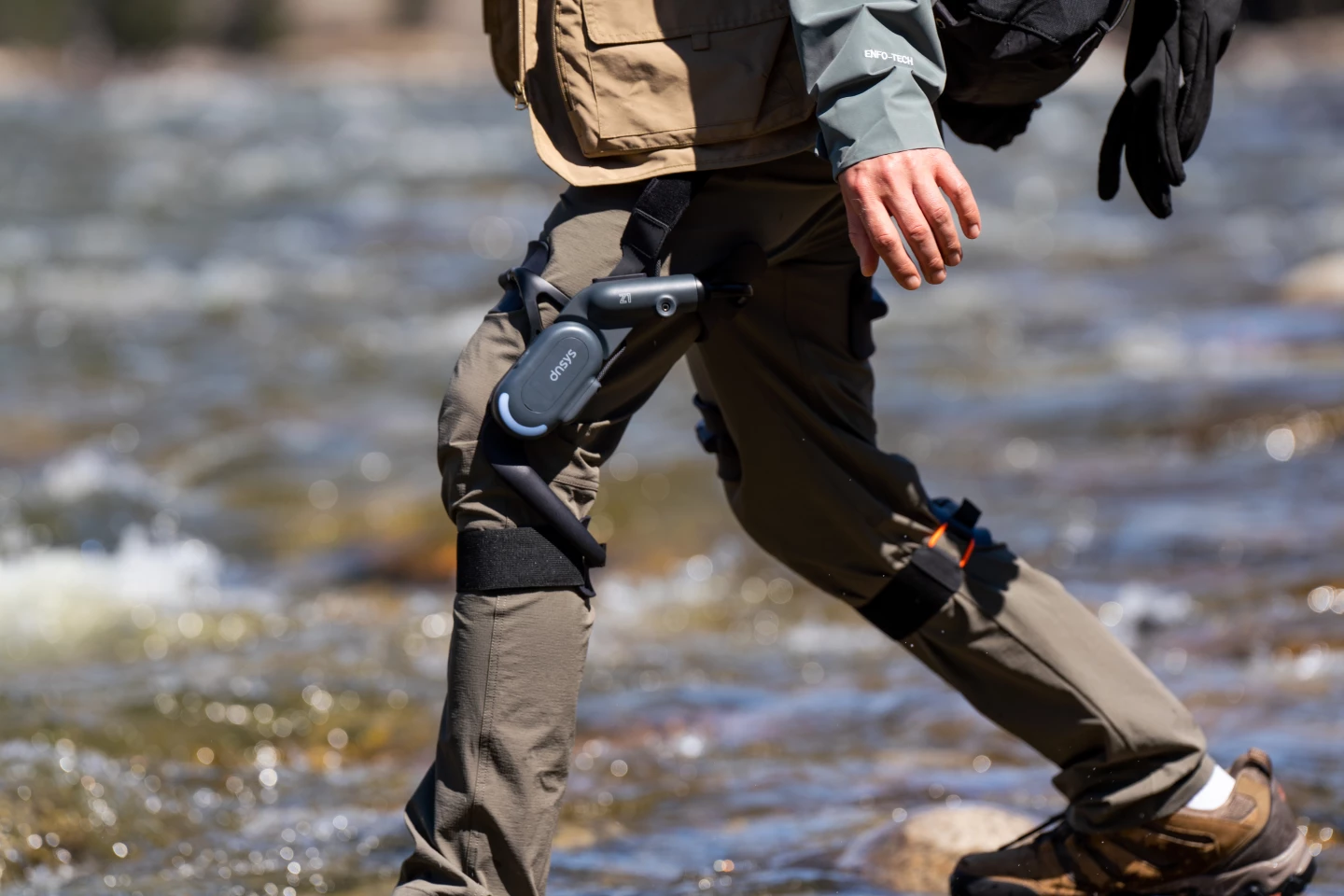Motors have been added to bikes, skateboards and kayaks … so how about just slapping a couple directly to your legs? That's exactly what the Z1 knee exoskeleton does, reportedly offering a 50% boost in the wearer's calf and thigh strength while reducing knee pressure by 200%.
Currently the subject of a Kickstarter campaign, the Z1 is made by Hong Kong startup Dnsys. The company was founded four years ago by robotics experts who previously worked for companies like Segway, DJI and Xiaomi.
Just last year, Dnsys brought us the similar X1 exoskeleton. That device, however, boosts strength at the hip joints, using motors to lift and push the legs forward at the tops/backs of the thighs. Some users reported that they'd appreciate the same sort of assistance at the knees, which is why the Z1 was created.

The setup actually consists of two 1.5-lb (680-g) hinged exoskeletons which can be carried in a backpack, and mounted on each leg in a claimed 15 seconds. A 450-watt motor in each unit then delivers force to the backs of the calf and the thigh via padded supports, simultaneously lifting the thigh up/forward while pushing off against the calf.
Onboard torque, position, and force sensors detect the initiation of leg movements, activating the motors within just 0.01 seconds. Over time, AI algorithms running on a dual-core 240-MHz processor (one per unit) learn the user's movement patterns, allowing the electrical assistance to be applied more smoothly and naturally.
In fact, the AI is reportedly capable of recognizing movements and switching assist modes for activities such as walking, running, cycling, jumping, squatting, sitting, and standing.

When used for hiking, the Z1 is claimed to boost endurance range by an average of 15.5 miles (25 km). And although the setup actually adds 3 lb (1.4 kg) to the wearer's weight, its lift assistance reportedly makes the person feel 44 lb (20 kg) lighter when standing up, climbing slopes, jumping, or squatting repeatedly.
The lithium-ion battery in each unit is said to be good for a runtime of up to five hours, although that figure obviously depends on usage. A kinetic energy recovery system helps boost the batteries by using the force generated when walking downhill to charge them.

And just to make things a bit more complicated, Dnysys is offering the Z1 in three models. The mid-range aluminum/carbon fiber Dual Joint, which is described in this article, could be yours for a pledge of US$899 if it reaches production. The planned retail price is $1,499.
There's also a lower-spec'd 225W-motor Single Joint model for a $699 pledge (retail $1,099), along with a premium Dual Joint Pro titanium model that goes for $1,398 (retail $2,298).
Source: Kickstarter







